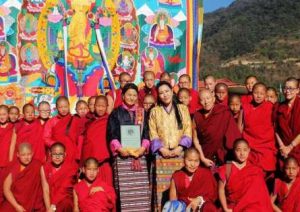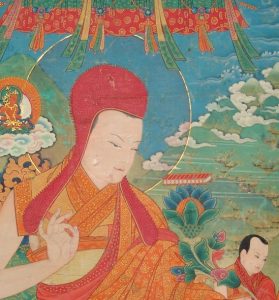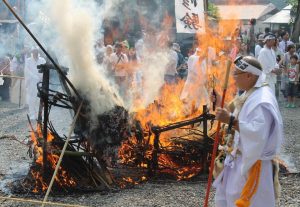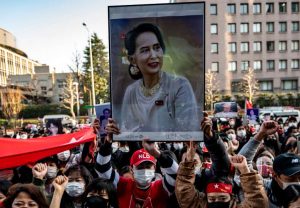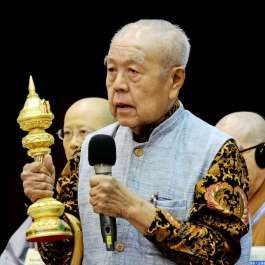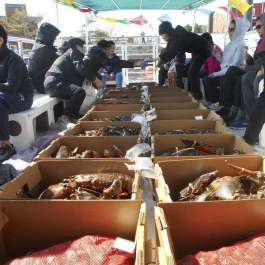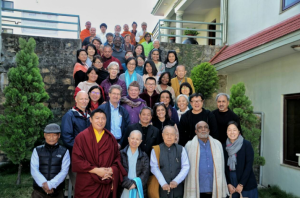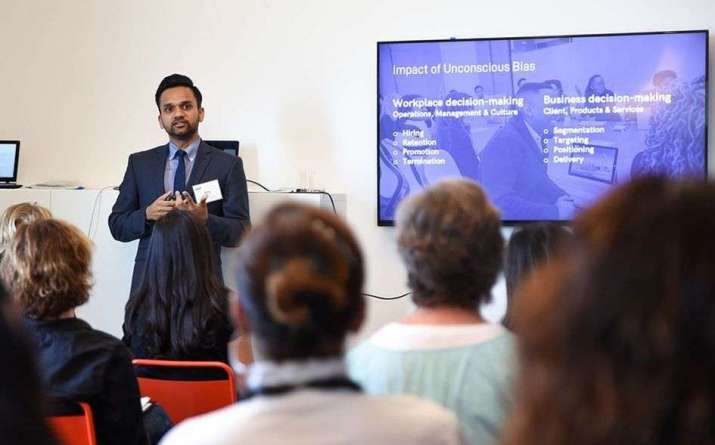
While explicit biases and prejudices are on clear display in the world today, unconscious biases remain unseen. Even people with no conscious bias can exhibit unconscious biases against other people based on age, gender, skin color, religion, and so on. And studies have shown that these biases may become more prevalent when we are under stress or multi-tasking, conditions that are prevalent in the modern workplace.
This month I interviewed Anurag Gupta, whose Buddhist practice, global education, and legal work have led him to found BE MORE, an organization devoted to training organizations to eliminate unconscious bias. As well as being the founder and CEO of BE MORE, Anurag is an attorney, an academic researcher, and a mindfulness expert.
Anurag’s work has been showcased on NPR, The New York Post, Dan Harris’s 10% Happier podcast, the Secular Buddhist Association Podcast, and in a TED talk. He was one of the 125 Buddhist leaders who presented President Obama with a Buddhist Statement on Racial Justice at the White House in 2016.
Buddhistdoor Global: Can you tell us about the mission and recent activities of BE MORE?
Anurag Gupta: BE MORE is a movement to infuse health, legal, education, finance, and other systems with principles of compassion and understanding to eradicate unconscious bias from decision-making. Our mission is to unleash human potential by training leaders in different fields in proven tools, such as mindfulness, to hack unconscious bias in decision-making. This is important not only in hiring, retention, and advancement of talent—particularly for people who have been historically stereotyped as less worthy, i.e. people of color and women—but also in the quality of services companies deliver to the global majority, which is non-white and non-male.
For example, in the healthcare industry, it has been reported that darker-skinned patients routinely receive lower doses of pain medication because there is an unconscious belief that dark skin can withstand more pain. The interesting thing is that this happens in split second decisions by providers of all colors, including darker-skinned ones. So the goal is to rewire the brain in how we imagine and relate to humanity in its fullness.
BDG: What led you to create BE MORE
AG: There are three things that inspired me to create BE MORE. Growing up in the US, I heard and had internalized lots of stories about “people like me;” i.e. darker skinned and immigrants—which made me feel less than. Over the last 10 years, my practice has been to unlearn these stories so I can truly be who I am. Second, I was appalled by the persistently abhorrent disparities that exist in my country and the world based on people’s appearance and body parts.
As a lawyer, I witnessed firsthand how young black children were being recycled through the prison system for petty crimes like breaking cell phones and trespassing, with so much cruelty, hatred, and misunderstanding. As a person of faith, my faith could not turn my eye away from the suffering of racial and gender bias in our society and I felt I had to do something about it. And third, I was gifted with the chance of an incredibly elite education and international experiences that showed me that we can hack and break unconscious bias for good. The neuroscience and other disciplines have given us a pathway forward and I wanted to apply the truth of what we know to reduce the suffering caused by separation of race, ethnicity, and gender identity in our society.

BDG: How does Buddhism influence your role at BE MORE and the mission of the organization as a whole?
AG: I am a Buddhist practitioner, and it is the Dharma that has been with me through the darkest of my own human suffering. The joy of the Dharma has allowed me to understand my own mind, but also why things are the way they are in our world—particularly when it comes to violence and suffering caused by bias—which at the end of the day is dualistic thinking rooted in ignorance of our interdependence. I fail constantly in my own Dharma practice, but that is the beauty of this path. I am made aware of my own blind spots and shortcomings on a daily basis to strengthen my commitment to wisdom and compassion. This awareness through over a decade of Buddhist practice inspired me to found BE MORE over four years ago.
BDG: Have you reached out to, or worked with Buddhist organizations to explicitly deal with bias in their structures?
AG: In the current rendition of our work, no. However, we have trained the staff, volunteers, and the boards of the New York Insight Meditation Society and the Barre Center for Buddhist Studies, where I sit on the board. I was on the founding committee of Buddhists for Racial Justice, now a part of the North American Buddhist Alliance, with Tara Brach, Hugh Bryant, Eleanor Hancock, and Rev. angel Kyodo Williams.
BDG: Do you see BE MORE growing and developing as part of the greater North American Buddhist community, or as something outside of that community?
AG: I really do not want to box it into one spiritual wisdom tradition over another because, as the Dalai Lama says, our work is about fostering kindness, understanding, and compassion in our world. It does not matter how people interpret it—whether within a Buddhist or a non-Buddhist context. We care about our impact to ultimately relieve human suffering, particularly suffering caused by othering and bias.
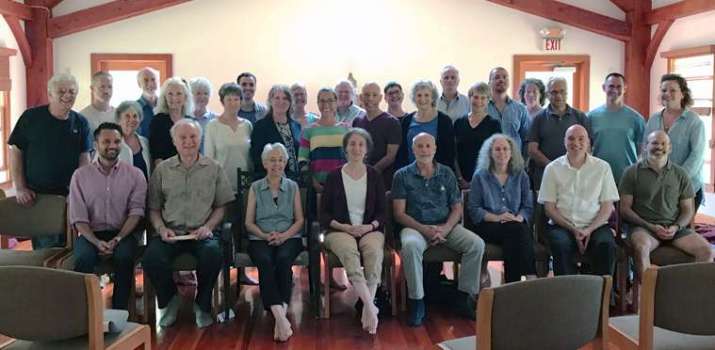
BDG: With so much bias (and worse) in the news and world today, how do you choose the topics you’ll work on?
AG: We offer one thing and one thing only, an understanding of bias rooted in science and how to undo it with regular practice. These issues have existed for millennia and something to which we humans are not new. I believe that it is our responsibility in our evolutionary consciousness to move beyond the pettiness of greed, hatred, and delusion, and reach into what delights and bring meaning to our life, which is human connection. Bias is what breaches that connection. This is where our work comes in.
BDG: Lastly, what activities or projects are on the horizon that you’re most excited about?
AG: We are working on building mobile technology to train professionals of different types in proven contemplative tools to hack bias over time. I am really excited for this project because it allows us to shift mindsets and remind people of their inherent goodness.
See More





